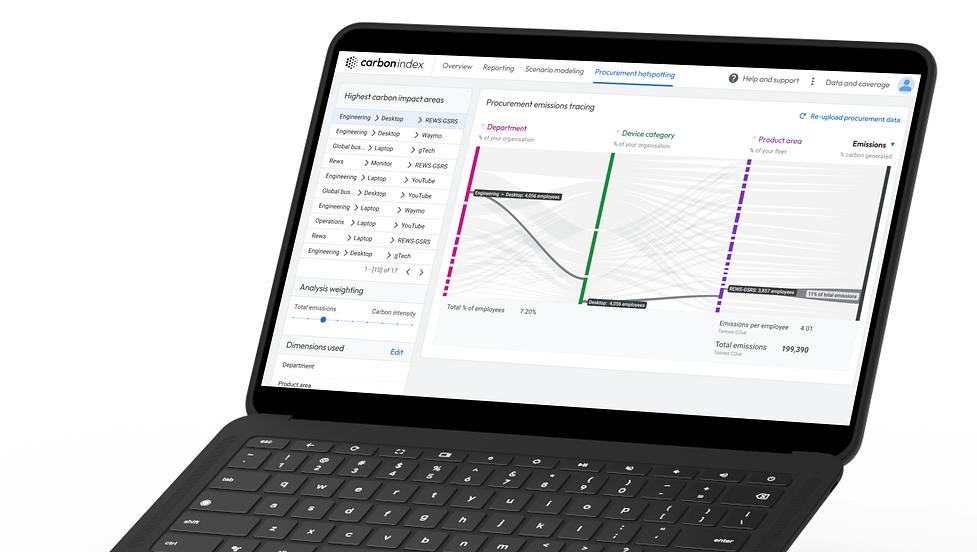
Carbon Index - Google's only sustainability project
UX and design lead
Companies, regulators and consumers are all driving change.
For example, from 2023 Scope 3 reporting will be required for all large companies operating in the EU. Many enterprises are setting net zero, or carbon reduction targets. Meanwhile, consumers are shifting their buying power to brands with a clear sustainability message. Therefore many organizations are moving away from suppliers who can’t show they are reducing carbon emissions.
Supply chain footprints need to be reduced, but product-level footprint data is REALLY hard to get hold of. Accurately obtaining, tracing and making sense of them is a Google-scale problem.
The Carbon Index project was put in place with a mission: Drive decarbonisation by making product-level carbon footprints universally accessible and useful. Creating actionable insights and reporting for asset managers and sustainability analysts.

I was the only UX/UI designer, working with the Product Owner and Head of Research, in a fast-moving environment in Area120, Google’s internal start-up incubator:
-
Research: We spoke with IT procurement leaders across private and public sectors in the US, Europe, and UK.
-
Developed 5 personas who influence hardware purchase decisions, and concentrated on 2 as primary.
-
Mapped out current procurement journeys, decarbonisation strategies and proposed actual use of our product by the main actors.
-
Looked at how we could add the magic only Google could bring. Using AI data specialists, and Google's internal tools we could automatically asses the user data and give recommendations for improvements - going way beyond single, simple parameters like amount of carbon per employee’s device or size of department.
-
Then four rounds of remote user-testing on prototypes with different large-scale organisations that we had their data ingested as trusted testers.


We pushed the Google Connect design system, combined with Material Design and Google's Aplos charts, to create our own rapid, lean design system to quickly engineer the application.
Allowing for user-investigation and analysis, AI recommendations, modelling future procurement and policy decisions and finally comparing outcomes against their baseline.

Incredibly well-received, at least one 'big-four' consultancy immediately partnered with Carbon Index to offer this, as a service, to all their clients.
Google is now looking at how they can expand the product and approach, beyond IT procurement, which was the first stage, and into other areas. As well as chunking small pieces of the service, as APIs, to inject where needed into some of their consumer offerings.
"Stuart was a delight to work with. He ramped up fast in a complex new space and delivered high quality work at pace; questioning assumptions, pushing boundaries, while staying pragmatic and focused on what we could deliver."
Mischa, Google Product Manager








